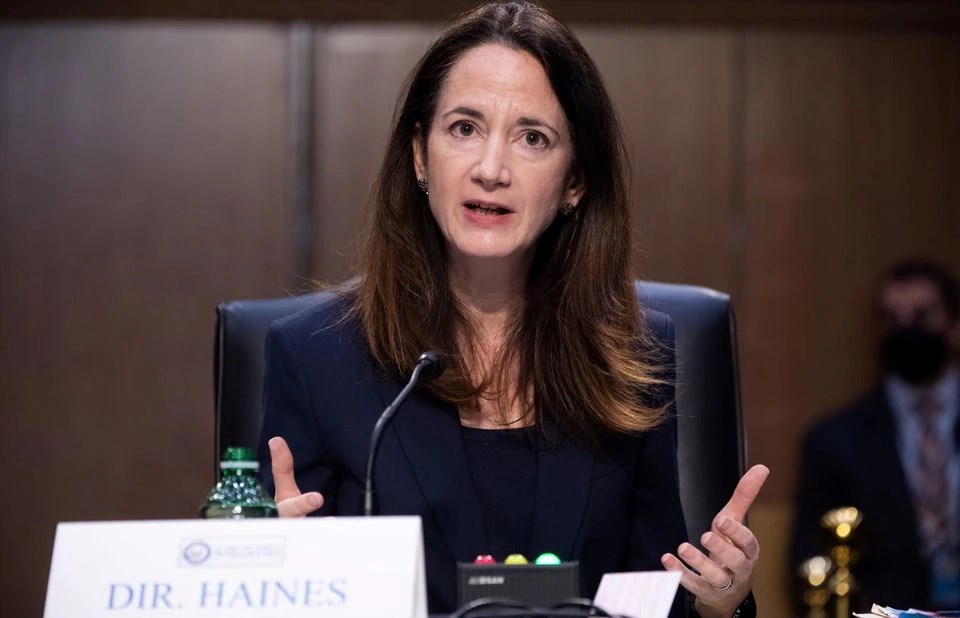Russia planning for prolonged conflict: US spy chief
The US director of national intelligence claims that Moscow is making plans for a prolonged war in Ukraine as President Putin has alleged goals that he wants to achieve in the long term.
-

US director of national intelligence Avril Haines
Russia's goals in the Ukraine war, the US director of national intelligence, Avril Haines, said Tuesday, "remained expansive", claiming that Moscow wanted to create a "land bridge" across Ukraine's Black Sea coast.
However, Haines claimed, Russia would struggle to achieve its alleged goals without a military build-up accompanied by a large-scale mobilization or draft.
She reportedly told the Senate Armed Services Committee that the next month or two of fighting in Ukraine will be significant as President Vladimir Putin tries to "reinvigorate" his military campaign. The official also asserted that Moscow ousting the Ukrainian armed forces from the Donbass region would not end the war.
"We assess President Putin is preparing for a prolonged conflict in Ukraine during which he still intends to achieve goals beyond the Donbas," Haines said.
According to the intelligence chief, US intelligence agencies did not believe that her assertions would come into life in the coming weeks, saying Putin was pursuing his term on the long term.
"Putin most likely also judges that Russia has a greater ability and willingness to endure challenges than his adversaries," she claimed. "And he is probably counting on US and EU resolve to weaken as food shortages, inflation, and energy prices get worse," she added as the two allies undergo stark predicaments related to that predicament exactly.
Neither side is winning, Lieutenant General Scott Berrier, the director of the Defense Intelligence Agency, said.
According to Berrier, the Russians are not winning, and neither are the Ukrainians. "We're in a bit of a stalemate here," he said, which could last for while.
If Russia was to "declare a full-scale war" and widespread conscription of the Russian people, despite Ukraine being able to generate additional combat power, it would crumble under pressure, the defense official stressed.
Haines underlined that diplomatic efforts or solutions were futile due to both Moscow and Kiev believing they could make military progress against the other. "The next few months could see us moving along a more unpredictable and potentially escalatory trajectory," she said.
As per current trends, President Putin, according to her assertions, is more likely to impose martial law, "reorient industrial production or take escalatory military actions."
If President Putin believed that nuclear threats were being ignored, he could authorize nuclear exercises, though Washington does think there is an imminent nuclear threat she added.
CIA Director William Burns said Saturday the US intelligence agencies are yet to see any "practical evidence" that Russian President Vladimir Putin will resort to nuclear weapons in Ukraine after Ukrainian President Volodymyr Zelensky claimed that his counterpart in Moscow could use such weapons.
"We don't see, as an intelligence community, practical evidence at this point of Russian planning for the deployment or even potential use of tactical nuclear weapons," Burns told a Financial Times conference in Washington, reiterating a previous assessment of his was made in early April.
Pentagon spokesperson John Kirby had also made the same statements a while back, calling Moscow's rhetoric on the potential use of nuclear weapons dangerous, also revealing that officials in the Department of Defense "haven't seen anything that would lead us to conclude that we need to change our strategic deterrent posture."
The Western claims come in light of Russia placing its nuclear deterrence forces on high alert at the onset of the Ukraine war and President Putin warning that foreign powers interfering with Russia's goals would face consequences "never seen in [their] entire history."
In late March, just over a month after the war broke out, President Zelensky made a video appearance at Qatar's Doha Forum and raised the possibility of the usage of tactical nuclear weapons in Ukraine.
Russia's nuclear arsenal exceeds that of the US, having around 700 more nuclear warheads than Washington. Moscow has repeatedly underlined its usage of nuclear weapons as a means of deterrence, stressing that it could use nuclear weapons in the event of a first nuclear strike on its territory or infrastructure or if the Russian state as a whole was facing an existential threat posed by nuclear or conventional weapons.

 4 Min Read
4 Min Read










